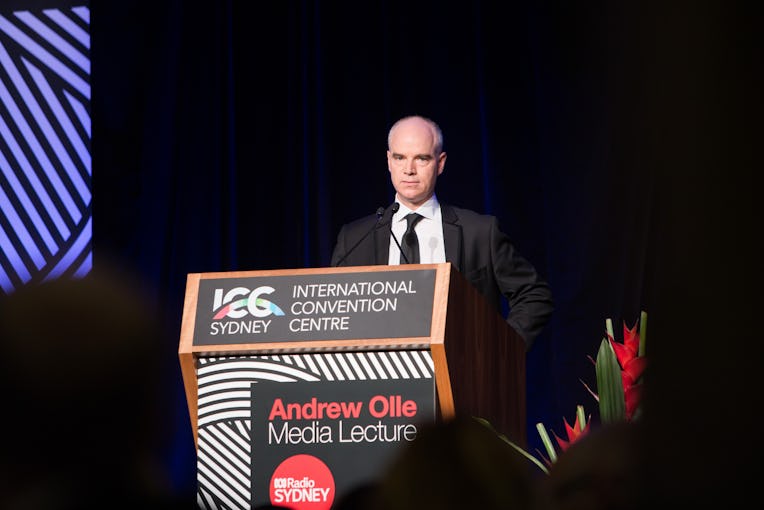New NYT Top Editor Was a Big Loser in College
At Harvard, of course

Tuesday morning, the New York Times announced that Joe Kahn, the paper’s managing editor since 2016, would replace executive editor Dean Baquet when he retires in June. The announcement sketched some of Kahn’s myriad accomplishments — reporting in China for several years, sharing two Pulitzers, overseeing the Times’ foreign coverage, then rising to the No. 2 position and dismantling the paper’s copy desk — as well as some other accolades, like inheriting the office-supply store fortune of his father. It also included this reflection on his personality: “While Mr. Baquet is known for an outgoing and casual style, Mr. Kahn is more reserved.” It seems the party years of the “L.A. Dean Baquet” regime have come to a close.
Because Kahn is so reserved — the word “quiet” appears three times in a recent Times profile, not including the headline, “A Quiet Intensity, Matched With Big Ambitions” — it can be difficult to get a sense for his vibe. But the profile included one intriguing insight: Kahn’s college friend observed that he has changed very little since his undergraduate years. “I would be hard pressed to draw any clear distinctions between the teenage Joe and the 50-something Joe,” the friend told the Times. “He’s probably a little more easygoing now.”
The notion that one hasn’t changed since their adolescent years tends to get framed as a compliment. This rings somewhat counterintuitive given that, with the rare exception of maybe a Malala Yousafzai or the Taylor Swift stan who took jail over joining the IDF, most people suck in college. Kahn went to Harvard, where this rule tends to express itself most vividly, and where he left an extensive footprint in the archive of the student paper, The Harvard Crimson. From a look at his old clips, it seems college-era Kahn, who also eventually became the paper’s editor-in-chief, did not deviate from that norm.
Kahn’s beat at the Crimson was the university’s leadership, and many of his clips toed the ostensibly objective, two-sided line the Times has long favored, but did so with exceptional generosity towards his most powerful subjects. Among them: billionaire presidential candidate Ross Perot (whom Kahn hailed as potentially “one of the greatest Harvard benefactors in recent decades”) and more-successful presidential candidate Ronald Reagan (whose 1986 Reykjavik Summit with Mikhail Gorbachev Kahn approvingly contrasted with Neville Chamberlain’s 1938 meeting with Adolph Hitler). Notably, Kahn had less generous things to say about Rev. Jesse Jackson, whose progressive activism, particularly around apartheid South Africa, he lambasted in a 1985 piece as “political,” “opportunistic,” and lacking “moral authority.”
A recurring character was Harvard’s president at the time, legal scholar Derek Bok. Bok’s greatest hits included inviting then-president Ronald Reagan to be the 1986 commencement speaker and a pointed lack of engagement with student protests over the school’s investments in apartheid South Africa. Kahn covered both of these developments, and the latter more than almost anything else. In a series of articles on the apartheid divestment protests, he painted Bok as a well-intentioned educator beleaguered by sanctimonious student activists.
His most explicit defense came in a piece titled, “Moral Fences Do Not Make Good Neighbors,” about Bok’s widely-mocked proposal to fund a $1 million program that would send 30 Harvard students to South African schools rather than divest. Kahn compared that program to FDR’s New Deal — “a bold initiative designed to fight the greatest depression this country has ever faced” — and suggested that students who felt otherwise merely “claim[ng] a monopoly on morality.” Activists would remain dissatisfied by all of Bok’s efforts, Kahn argued, short of “personally hiring a plane, flying to Pretoria, and splitting P.W. Botha’s head with an Uzi submachine gun.”
When the internship proposal later became, per Kahn, a “public relations nightmare” and “arguably the most widely criticized of any of Harvard's ties to South Africa,” the writer changed his tune. In a begrudging op-ed titled, “Give Them What They Want,” Kahn conceded:
If Harvard is to help Blacks, as it claims to desire, it must invest only in companies Blacks approve of and supply interns only to institutions that Blacks wholeheartedly support. If told that no interns and no investments support the interests of Blacks, then divestment and disengagement are the only options.
Kahn's focus on school governance did not preclude him from wading into other topics — like federal deficit spending (bad), or pay equity (questionable at best), or America’s culpability in Middle Eastern conflicts (not “in any way” responsible). In a 1984 piece called “Incomparable Waste,” for example, Kahn opined on the increasingly loud calls for “comparable worth,” or what some might call “equal pay for equal work.” Kahn’s take on the matter — which largely concerns the onerous burden it would impose on business — can be summed up by this line: “The concept sounds good, but then so did Communism.”
Kahn’s final piece for the Crimson was about the introduction of a Women’s Studies department — formed after a faculty vote in which only one professor voted “nay.” In Kahn’s mind, this single voter, Harvey C. Mansfield, Jr., spoke for the “intimidated minority” who “feared the precedent of an 'affirmative action' field of study.” That so few rushed to join Mansfield, Kahn diagnosed, reflected a “fundamental” problem within the Harvard community: “Those who govern it view public dissent as damaging, free debate as dangerous.”
That sounds bad, but it can be harsh to be judged by one's college output. So in fairness here are 800 humiliating words I wrote about the “Legendary Ninth Annual Harvard Square Chocolate Festival.” Congrats, Joe!